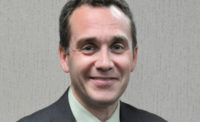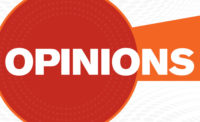There are a lot of changes hitting the HVACR industry. Nobody knows that better than Steve Yurek, the president and CEO of the Air-Conditioning, Heating, and Refrigeration Institute (AHRI). The NEWS was able to sit down with Yurek to get his opinion on the state of the HVACR industry.
The NEWS: Talk to us a little bit about the health of the industry. According to the AHRI shipment numbers, the industry is growing. Do you see that continuing?
Yurek: There is the natural growth as new housing is being built. It is obviously rare when a house is built without air conditioning. You also have the replacement market. For many years after the 2006 rise to 13 SEER and the economic downturn of 2008 and 2009, there was a delay in replacement. Homeowners would repair instead, and it showed in our shipment numbers. We dropped from 8 million a year to 5 million a year. That has slowly crept up to the point where we are just starting to get back to where we were in 2006. You have the pent-up need to replace some old equipment that has been repaired maybe multiple times. I think that is going to continue for the foreseeable future. Of course, that could change if there is an economic downturn. There could also be an impact of what is going on in trade and how that is going to impact the cost of products. The question becomes what consumers will do if the price point is increasing.
The NEWS: Since you brought it up, what is your view on the tariffs?
Yurek: We are very concerned about tariffs. We believe in free and open trade. Our members make great products and can compete against anyone as long as everyone is treated the same. We have expressed to the administration that there are concerns related to some of our trading partners and their unfair practices and barriers to trade. That could be standard-based, where they put in very local, specified standards that put up barriers to products from the outside. But at the same time, is the solution tariffs or not? We will see. Our concern is what the end game is. How long is it going to go on until we have an agreement that both parties want to sign? The longer this goes, the much more significant impact it has on the market and consumer. We would much rather have the market encouraging them to buy a new product. The retaliatory tariffs are causing some of our manufacturers to look at where they are manufacturing their goods for outside the U.S. That impacts jobs and the U.S. economy itself.
The NEWS: In the recent past, regulations have been a real issue for this industry. Has that slowed down with the Trump administration?
Yurek: There are still a lot of regulations going on because they have been set in place a while ago. More of them are procedural rather than the big efficiency standard regulations. DOE [Department of Energy] has not issued any of those under this administration. They are statutorily obligated to do rules on a certain schedule. We want them to issue these regulations because if they get pent-up, possibly a new administration could do this in 2020. We would much rather have this current administration and its philosophy of the rules needing to be technically feasible and economically justified. They are not working on the big stuff, and we really need them to work on the big stuff. The biggest growth has been at the state level — particularly the coasts. The good thing about energy efficiency is that most of our products are federally regulated and so states and localities are preempted from enacting their own regulations. California tries every once in a while, but that is more the environmental side and refrigerants. That is why we want Kigali. Instead of regional or state regulations that can have different requirements and transition dates, we want a federal program that helps us meet our obligations under Kigali.
The NEWS: What would you say is the biggest concern for your members?
Yurek: I think the biggest concern is the unknown and unpredictability of trade and where things are going there. There is currently unpredictability without the federal government stepping forward on environmental and energy issues right now. Where is that going to go? In two years, if there is a change in administrations, are we going to see a whiplash from where we are today to aggressive regulation again? We need to have some rational, predictable regulations that are on a known schedule that everyone agrees to that can provide us some predictability — rather than have no regulations for four years and then two or three for each product over the next four years. Unpredictability is their biggest challenge. That is why we want the modernization of the Energy Policy Conservation Act [EPCA].
The NEWS: How about the biggest issue for the industry as a whole?
Yurek: I think the biggest issue is change and the pace of that change. As an industry, we have had change, but that change has been moderate and measured. The level of change we are seeing in refrigerants, technology, connectivity, how we communicate with our customers — it is all changing so quickly. How do we manage that and still deliver the high-quality products that the consumers want to make their lives better? How do we do that in a cost-effective way? I think the whole level of change is causing a lot of angst. Some companies are seizing that to their advantage, and that’s part of the market. You are seeing some of the smaller companies grow in some niche products but also some consolidation from some of the bigger companies. The potential for that will continue as we move forward. I expect to see more consolidation. It is a healthy industry and economy when you see that.
Publication date: 12/10/2018
Want more HVAC industry news and information? Join The NEWS on Facebook, Twitter, and LinkedIn today!





